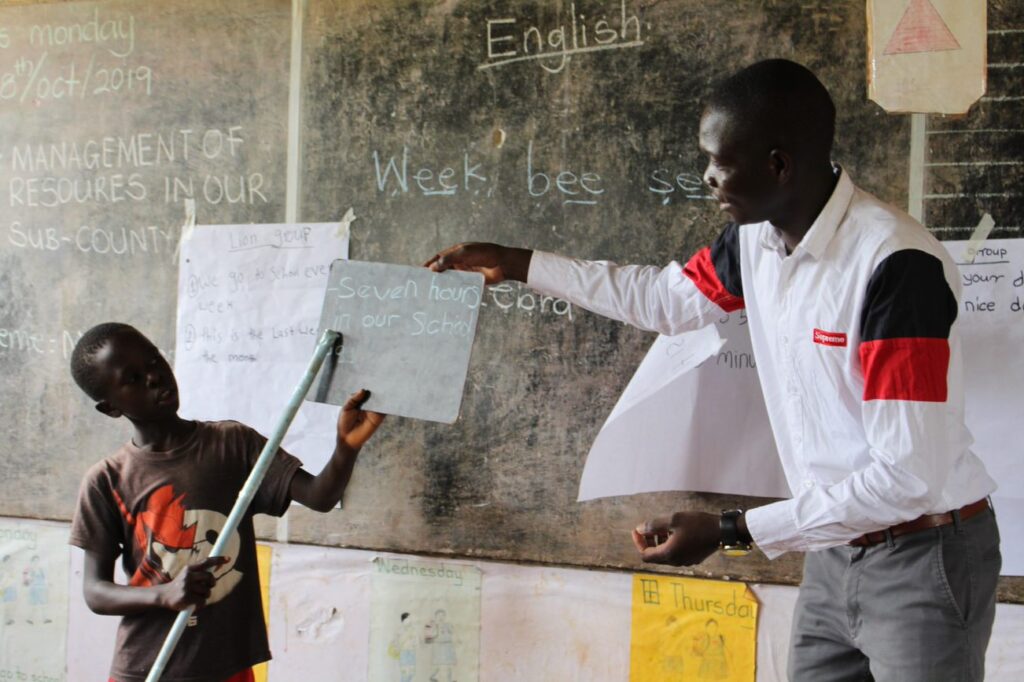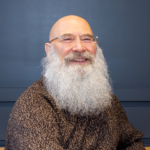Who is a teacher?
A teacher is much more than someone who transmits information and techniques to our children, translating the curriculum into knowledge for students to absorb and, hopefully, understand and retain. A teacher is also often a life coach, helping students navigate their places in the world today and chart a course towards fulfillment and success in the future.
Teachers do this in many ways. They help students learn how to learn. They foster their personal skills, such as collaboration, resilience, creativity, and conflict resolution. They may even help them manage their emotions and strategize to handle challenges at home and elsewhere within and beyond the school. They are role models, cheerleaders, and caring taskmasters. Teachers serve both society and our children by preparing students for fulfilling, productive lives, and they often do this despite highly challenging conditions and receiving minimal respect.
Certainly, there are many teachers whom this characterization does not describe. In reality, a student may only find a handful of teachers who truly do all this for her/him over the course of an academic career, but that is usually enough. Different students will find different teachers to serve these roles for them.
How can we help teachers do their jobs well?
We as parents and as society understand that we have enormous roles to play in helping our children learn, both to succeed in school and to be ready for fulfilling, productive, engaged lives after their studies. We do not always understand, though, the complete nature of these roles, and, arguably, we fulfill them even less often. These roles function at home, in the community, and at school. How well we perform them translates into a degree of partnership with the teacher that falls somewhere along a continuum from:

So how can we help? At home, we must make sure our children are prepared and eager to attend school every day with a commitment to engage and learn. We do this by making sure they are clean, well-nourished, rested, and in good health, by making sure they have time, space, and conditions to review and be ready for their lessons, and by showing our children that we care about their schooling by asking questions, setting expectations, monitoring their work and performance, and encouraging them.
In the community, we support our children’s school participation and success by addressing social norms around topics such as gender equality and the inclusion of children with disabilities. We take measures to secure their safety, their access to health services, including mental health, and cultural and athletic activities, and their job readiness and orientation opportunities, among other measures.
At school, we serve as teachers’ allies by contributing to the school’s management and maintenance, advocating with authorities, supporting all students’ enrollment and regular attendance, providing logistical support in the classroom, and accompanying the teacher to link academic lessons practically to the local context. We also do this, quite simply, by valuing the teacher and respecting her/his authority, commitment, and skill.
How do we help teachers succeed?
I feel extremely fortunate here at Geneva Global to be part of a team that contributes to teachers’ success in all these ways. We do this through Speed School, an accelerated education program that I am privileged to implement with colleagues and partners in Ethiopia and Uganda on behalf of a group of inspiring clients.
First, we help parents be strong teacher allies, which we accomplish in a few ways. We support them to start or grow income-generating activities and to manage group savings so that they can both cover the various school fees and create more conducive conditions at home for their own children’s school success. We train, support, and encourage them to advocate and take actions in their communities to address practical and societal obstacles to equitable and inclusive school participation and success. And we mobilize them to form community management committees to support their children’s teachers both logistically and in linking learning to “real” life through family-based, nature-based, community-based, and culture-based lessons.
Second, we intervene both directly and indirectly with teachers to cultivate their capacity, commitment, and confidence to succeed in helping their students to learn. We do this first and foremost by establishing the teacher as the ultimate authority in her/his classroom. This begins with respect but also includes a series of direct actions. We train them at the start of the year and at key moments throughout, emphasizing how they can apply the core Speed School model and methods in their unique classroom settings. We provide regular supervision and support through classroom visits and virtually to discuss how they might fine-tune what they learned in training and address any confusion and gaps. We also prompt them to convene as education communities of practice to reflect, experiment, and adjust their practice together for greater results.
Lastly, we provide them a variety of technical notes, guidelines, sample lessons, teaching and learning supplies, and other documentation and inputs with which to evolve professionally and enrich the design and delivery of their lessons.
Indirectly, we work across the education system, co-creating with hierarchical and technical structures alike strategies they can deploy to help teachers succeed, strengthening both their intrinsic and extrinsic capacities. Among the functions we help them shape and fulfill to strengthen teaching and learning in Speed School classes are pre-service teacher training, classroom supervision, curriculum, planning and budgeting, school improvement, and gender equality and inclusion.
Ultimately, it is a matter of mobilizing, equipping, and motivating all stakeholders to provide teachers the freedom and drive to summon their full creativity and initiative to design and deliver lessons that are best suited to help their students learn the official curriculum in ways that will serve them, their communities, and the nation well, now and tomorrow.
Teachers are my heroes because they accept this responsibility and try extremely hard to do this well even when the conditions in which they work are far from ideal; at least most do. Our jobs as society, education systems, and parents is to do our best to be strong allies to teachers, since their success is essential to ours.
Dr. Joshua Muskin is a Senior Director and Education Team Leader at Geneva Global. Joshua is an expert in converting education and other development investments into innovative programs with exciting strategies and enduring, life-changing impacts. Recognized by peers internationally, he brings extensive expertise in the many dimensions of education and training, wise and effective leadership, and a collaborative approach to the design, implementation, evaluation, and sustainability of programs across development sectors.
You can reach him at [email protected], read his full bio here, and visit his LinkedIn profile here.
Additional blogs by Joshua:
- Ethiopia Inaugurates New Speed School Unit to Reach Out-of-School Children
- Staff Spotlight: Dr. Joshua Muskin
- COVID-19 and Education: Emphasizing the Journey, Not the Destination
- Independent Evaluation Confirms Speed School’s Effectiveness
- Six Design and Implementation Dimensions to Promote Project Sustainability
- Four Key Elements for Successful Education Systems Change


